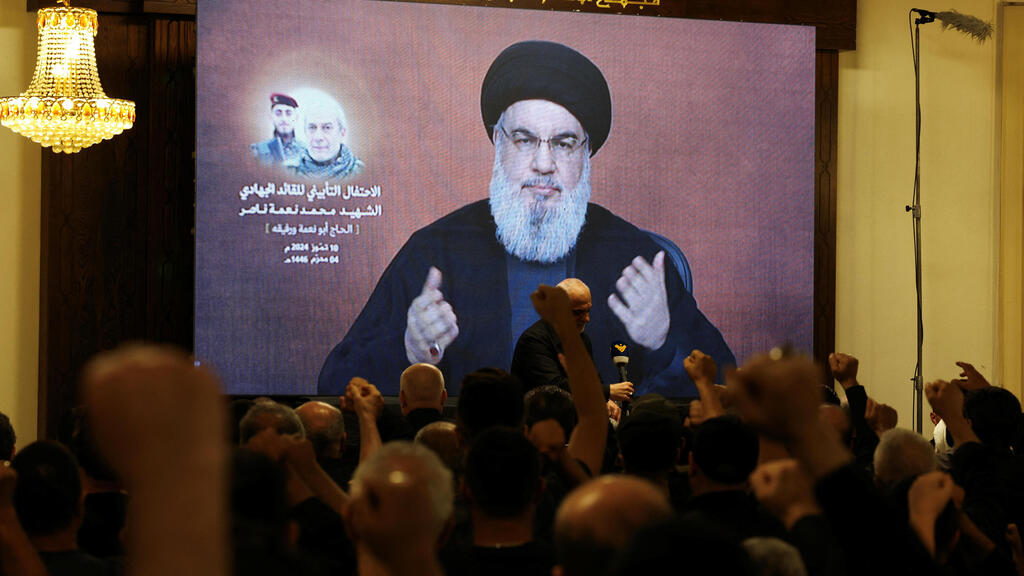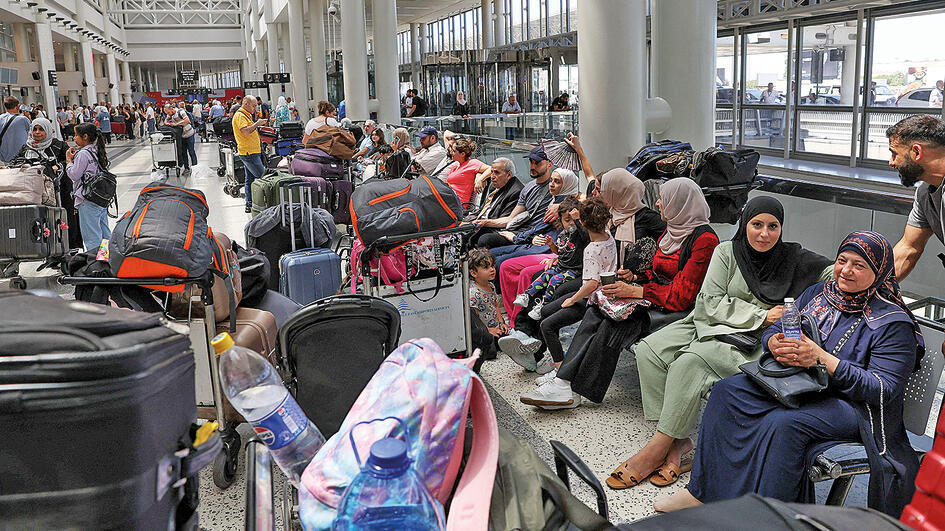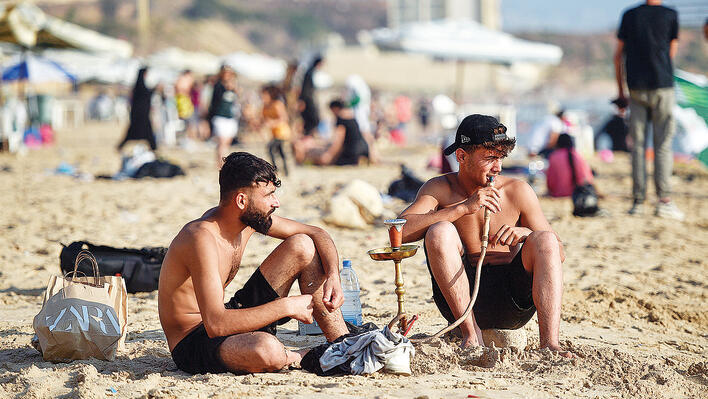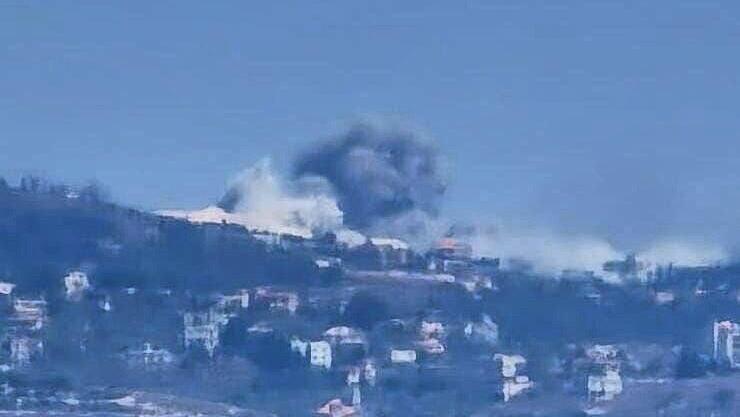Getting your Trinity Audio player ready...
Beirut resident Dani Elias heard about the Majdal Shams massacre — where 12 children and teenagers were murdered — while watching television. He then turned it off and began cursing. In a special article, Elias wrote for Ynet and its sister publication Yedioth Ahronoth, he described the fear of the Israeli response, Hezbollah's preparations, and the criticism against the terrorist organization.
Yesterday, when I arrived at Rafic Hariri Airport (named after our former prime minister who was assassinated by Syria and Hezbollah) with my wife and two daughters, we were surprised to find that our flight was canceled. Not only our flight, booked months ago, but dozens of other flights as well.
My son, the youngest of my three children, asked me why the flight was delayed, and I looked for the words to explain. We had planned a vacation, and we had to return home, and there weren't even any taxis available. The Lebanese love to run away so much.
The fear is that Israel will bomb Lebanon's only international airport. My wife tells me that we’re in a better situation compared to those who flew out yesterday and the day before. They boarded the flights, but no one can guarantee when they’ll return. This situation of "quasi-war" is imposed on me and my friends. We don’t belong to Hezbollah, we aren’t involved in wars against Israel, we lead normal lives in Beirut.
Let me tell you how the terrible disaster in Majdal Shams looks from the Lebanese perspective: On the day the children were murdered on the soccer field, we in Beirut were engrossed in the Lebanese beauty pageant. When I saw the disaster in Majdal Shams on my phone, we turned off the television and began to shout and curse.
The Lebanese immediately split into two camps: those who were willing to swear that Hezbollah is innocent. One of the first to give Hezbollah a pass in this case was the Druze leader Walid Jumblatt, and after him, similar statements were made by Druze leader Talal Arslan, Jumblatt's rival, and former Druze minister Wiam Wahhab.
Opposite them were those who cursed Hezbollah and blamed it for the massacre on the soccer field. They expressed great anger, frustration, and sadness over the innocent victims – and now, both camps are afraid that the situation will escalate into a full-blown war.
The truth is that since October 8, when the first missile was launched from southern Lebanon, we have feared getting entangled in a military campaign that we have no connection to. It’s a dangerous adventure that will harm Lebanon's already fragile economic situation. How will we endure? And I ask myself, why on earth did Hezbollah decide to "volunteer" for the war in Gaza? Explain to us, the citizens of Lebanon, what they want.
Some claim that Israel planned a war against Lebanon immediately after the war in Gaza. Maybe now, in response to the terrible event in Majdal Shams, they’ll deliver the blow that was delayed before.
Another fact that is unclear to the Lebanese is if Hezbollah has acquired such a large quantity of long-range missiles, why hasn’t it used them until now, in the ten months since the war began? I’m sure that your senior leadership is dealing with this question. Maybe they have an answer.
Fear and anxiety in Lebanon rise and fall according to the security situation. Some will argue these are just threats and that neither side wants to escalate the fighting. Some think what’s happening in southern Lebanon is just talk, while the real war continues in Gaza.
4 View gallery


Hezbollah leader Hassan Nasrallah adressing people in Beirut
(Photo: REUTERS/Mohamed Azakir)
But there are also those who see a darker future. Those who think that the war will reach Beirut and are angry about Hezbollah’s unilateral decision to declare a fight (not a war) that the civilian Lebanon has no interest in entering. The unifying line among all Lebanese, from all communities, is that they live their daily lives without planning – because what’s the use of doing so? You plan, prepare and then everything is destroyed in a moment.
Now, at the height of summer in Lebanon – festivals and restaurants are open until the early hours of the morning. Artists from the Arab world come to Beirut. They love to come to Beirut, to see the crowded restaurants – but this time, almost no foreigners arrived.
A few Jordanians, Kuwaitis, and Iraqis broke the ban on visiting Lebanon and came anyway. They sit in cafes, spend money on food and drinks and enjoy life. Soon, they’ll flee. They aren’t interested in what’s happening in southern Lebanon.
They might read the news on websites, but we, the Lebanese, hear about what’s happening from relatives. The villages of Adaisseh, Hula and Meiss Ej Jabal talk about terrible destruction unseen in previous wars. Most are fleeing – or have fled – to villages in the Tyre area, and some come as far as Beirut if they have family to take them in.
They talk about the noise of Israeli planes reaching Beirut, the noise I’ve also heard. I can tell the Israelis that Beirut residents suffer from severe headaches because of the jets’ noise and the fear of explosions. Who can guarantee that a relative of mine won’t be harmed by them?
Residents of southern Lebanon convince themselves that Hezbollah will compensate them for the damage to their property – the destruction of homes, herds that fled or were killed and the ruined fields.
But deep inside, as I’ve witnessed, they curse Hezbollah for dragging them into the war and forcing them to flee their villages. Some Lebanese believe that we will ultimately get out of the Iranian quagmire, that the political climate will change. They think Lebanon will emerge differently from the war. Me – I don’t believe that.





